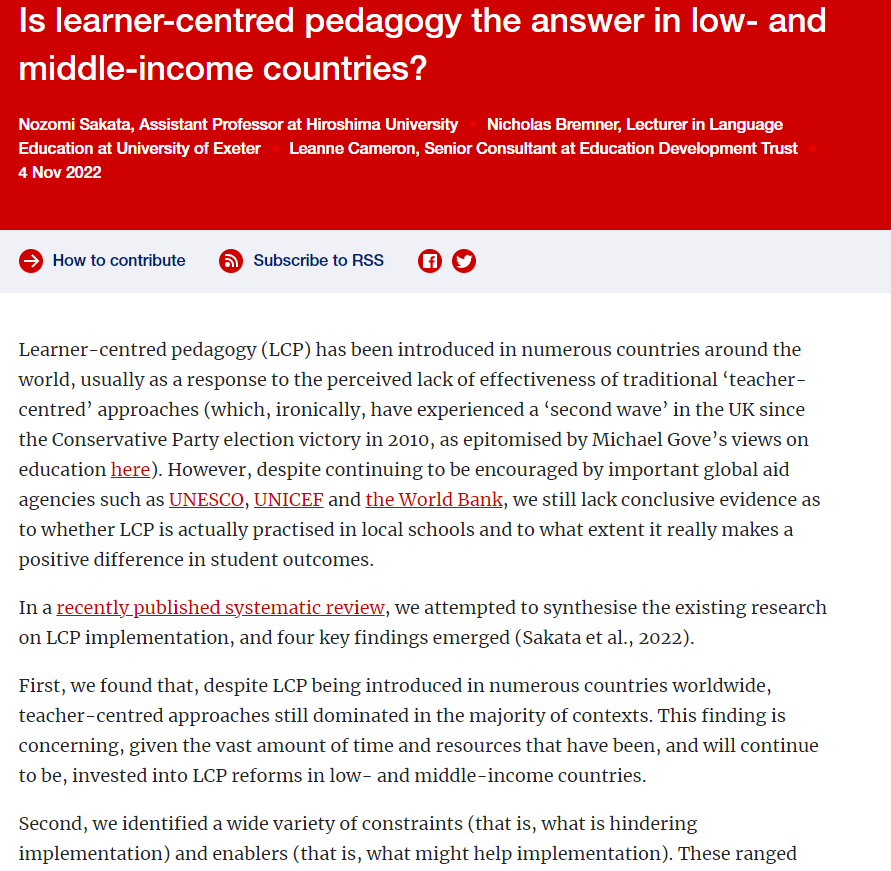SCIENCE TEACHING AND EVIDENCE: A THREAD
#ASEChat #SciEd #ScEd
@ESERA_org @NARSTorg @chrisharriKings @BestEvSciTeach @JustinDillonUCL @JaumeAmetller1 @DignaCouso @mrjimene @adamboxer1 @sci_challenge @IOPTeaching @TheRSC @RoyalSocBio @agittner @chemDrK
#ASEChat #SciEd #ScEd
@ESERA_org @NARSTorg @chrisharriKings @BestEvSciTeach @JustinDillonUCL @JaumeAmetller1 @DignaCouso @mrjimene @adamboxer1 @sci_challenge @IOPTeaching @TheRSC @RoyalSocBio @agittner @chemDrK

Current discourse on t=l (sec) sci ignores decades of research. @BestEvSciTeach host a fab website, not widely enough used, ignored in 'evidence-based practice' discourse.
BEST toolkits provide:
*appropriately-sequenced steps for learning progression
*diagnostic questions to reveal preconceptions and common misunderstandings
*response activities to challenge misunderstandings and encourage conceptual development
*appropriately-sequenced steps for learning progression
*diagnostic questions to reveal preconceptions and common misunderstandings
*response activities to challenge misunderstandings and encourage conceptual development
I'll give a quick/dirty summary of the available evidence on t+l specific science topics here: follow up on BEST!
*IDEAS learners bring to t+l
*HOW COME? Theorising
*CURRIC SEQUENCING
*EFFECTIVE/EVALUATED T+L STRATEGIES
*IDEAS learners bring to t+l
*HOW COME? Theorising
*CURRIC SEQUENCING
*EFFECTIVE/EVALUATED T+L STRATEGIES
Common patterns across the world of students' ($) responses to teaching in particular topics. Often called misconceptions - only some meet criteria for 'concept' tho, others produced on-the-spot in response to teaching. Effective teaching is designed with these patterns in mind
[Current English emphasis on 'neuroscience' completely misses this evidence on subj-specific t+l]
Suggestion: English CCF/ECF for sec science teachers should include this extensive body of evidence about t+l (!)
WHY DO $ RESPOND IN THESE CHARACTERISTIC WAYS TO TEACHING? The Theory Bit:
*Evidence that young $ 'mature out of' some ideas (e.g. Piaget: concept of 'living' moves towards more biological with age)
*Perception: objects DO stop moving when force not applied (at least on Earth)
*Evidence that young $ 'mature out of' some ideas (e.g. Piaget: concept of 'living' moves towards more biological with age)
*Perception: objects DO stop moving when force not applied (at least on Earth)
*Socialisation into ways of talking: 'shut the door to keep the cold out'
*Perception-meets-teaching: gas is continuous (perception), gas made of particles (teaching). Result:
*Perception-meets-teaching: gas is continuous (perception), gas made of particles (teaching). Result:

CURRIC SEQUENCING
e.g. when introducing $ to particulate nature of matter start with s and l NOT g because there are much bigger learning challenges.
English National Strategies have good stuff on this stem.org.uk/elibrary/colle….
e.g. when introducing $ to particulate nature of matter start with s and l NOT g because there are much bigger learning challenges.
English National Strategies have good stuff on this stem.org.uk/elibrary/colle….
WHAT CAN BE DONE TO MAKE T+L MORE EFFECTIVE?
@BestEvSciTeach have formative ass plus teaching/sequencing materials by topic across p/c/b. Most evaluated. Nat Strats (see last Tweet) all evaluated and evidence-informed.
@BestEvSciTeach have formative ass plus teaching/sequencing materials by topic across p/c/b. Most evaluated. Nat Strats (see last Tweet) all evaluated and evidence-informed.
FIN
• • •
Missing some Tweet in this thread? You can try to
force a refresh








